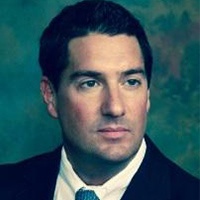Sandy Hook DUI-DWI Lawyer, Connecticut
Sponsored Law Firm
-
 x
x

Click For More Info:
-
Maya Murphy, P.C.
266 Post Road E Westport, CT 06880» view mapDivorce & Family Law Representing Excellence
At Maya Murphy, PC, our attorneys strive to provide large firm service, experience, and ability, with small firm communication, attention, and accountability.
203-221-3100
James O Ruane
Motor Vehicle, DUI-DWI, Criminal
Jay Ruane is a practicing lawyer in the state of Connecticut.
Scott Leventhal
✓ VERIFIEDDUI-DWI, Accident & Injury, Criminal, Workers' Compensation
Representing the accused and the injured since 1957. We understand that sometimes good people make mistakes. The story of the LoRicco family and t... (more)
Dom Chieffalo
Dispute Resolution, DUI-DWI, Business Organization, Banking & Finance
Status: In Good Standing
Jeffrey D. Ginzberg
Farms, Divorce, Child Support, DUI-DWI
Status: In Good Standing Licensed: 44 Years
Ioannis A. Kaloidis
Commercial Real Estate, Workers' Compensation, DUI-DWI, Personal Injury
Status: In Good Standing
Kevin Michael Black
Divorce, DUI-DWI, Criminal, Car Accident
Status: In Good Standing Licensed: 31 Years
Kevin Murray Smith
Criminal, Civil & Human Rights, DUI-DWI, Felony, Misdemeanor
Status: In Good Standing Licensed: 17 Years
FREE CONSULTATION
CONTACTJohn J. Keefe
Workers' Compensation, Family Law, DUI-DWI, Criminal
Status: In Good Standing Licensed: 44 Years
 Joseph C. Maya Westport, CT
Joseph C. Maya Westport, CT Practice AreasExpertise
Practice AreasExpertise


